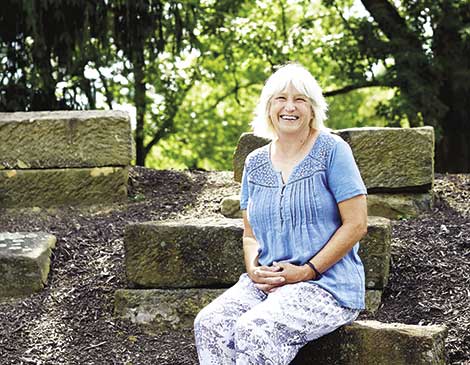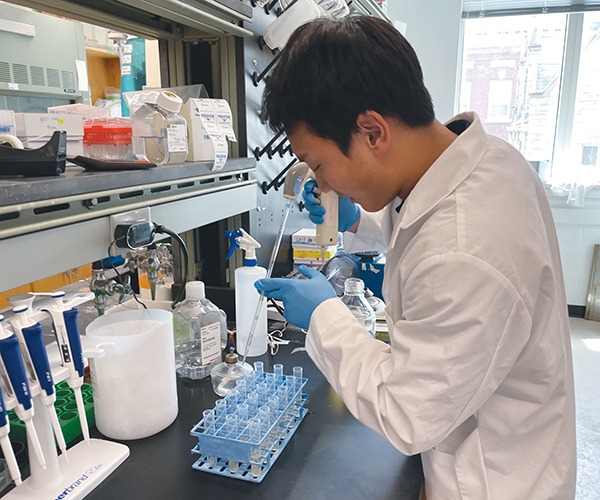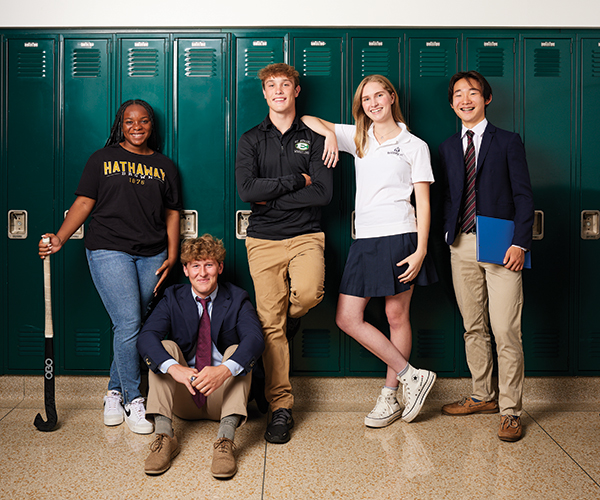Mary Truax was already a beloved biology teacher and head of Walsh Jesuit’s science department when, in 2004, her husband Andy left his job as an environmental consultant to teach at the school alongside her. When he died unexpectedly in July 2019, Truax added his course load to her own, taking over his AP environmental science class — and with it, so many of the students who loved him. Her relationship with Walsh Jesuit, where she’s taught for 22 years, and especially her students, got her through those tough times.
There's a Latin phrase “Cura personalis,” care for the entire individual. In a private school setting, there’s room to really care for the whole person — their academic, spiritual, physical, mental sides. It's so important to be part of a community that is concerned about that and working on how to do that better.
It's not just about us, as educators, caring for their whole person. They’re developing this sense of caring for our whole person, too. The year after Andy died was tough for me, but [my students] really became an emotional resource for me. I could just say, “I’m struggling today. I miss him.”
If you give them a chance, young adults are pretty remarkable.
Our reality is our reality in the moment. If a ninth-grader gets dumped, it’s easy to roll our eyes and say she’ll get over it — but right now, she’s 14. And right now, that hurts a lot. As adults, we can’t put our lifelong expectations on teenagers when it comes to what they’re feeling right now.
I'm not huge on Myers-Briggs tests, but I’ve learned so much from my colleagues about recognizing [differences in] personalities. Just because somebody isn’t answering questions doesn’t mean they’re uncomfortable. They might just be quiet. You have to figure it out: Is it that person’s personality, or are they actually feeling isolated? My colleagues’ work and research has taught me how to better understand students.
Walsh's Diversity Director helped us all really consider: Do we understand what our implicit and explicit biases are? We read books about it together and had conversations about how we’re approaching diversity, what our biases might be. Because how can you truly do “cura personalis” with a population you’re not attuned to?
Another phrase at Walsh, “grad at grad,” considers what characteristics the graduate should have when they graduate. There are five aspects we hope each individual will attain: religious, loving, committed to doing justice, intellectually competent, open to growth. It’s the educators’ job to provide avenues for that.
These students, whether they come from wealth or not, are our future leaders. They’re going to have great potential to make a difference, both financially and socially, as our future politicians, philanthropists, people who will start their own nongovernmental organizations — so as educators, let’s make sure they have a background in justice.




